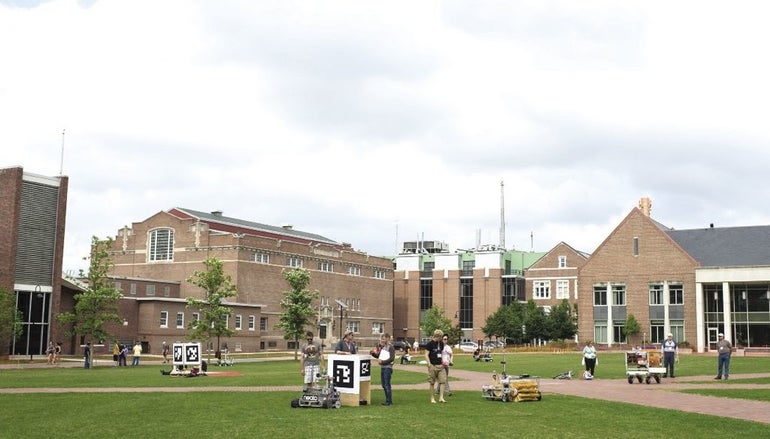Supporters say it would be a way to invest in public education and have tax-exempt higher education institutions work to counteract growing inequality, but opponents of legislation to tax some private university endowments claim it is unconstitutional and would harm Massachusetts’ image as a bastion of higher education.
The Committee on Revenue heard testimony Tuesday on a Rep. Denise Provost bill (H 1617) that would impose an annual excise of 2.5 percent on endowment funds of private higher education institutions with aggregate funds exceeding $1 billion.
The revenue raised by the excise would be deposited into an Educational Opportunity for All Trust Fund that the bill creates for the purpose of “subsidizing the cost of higher education, early education and child care for lower-income and middle-class residents of the commonwealth.”
The Somerville Democrat said her proposal calls for a “modest” contribution from universities with large endowments that will help close “the terrible wealth gap which is separating people in our commonwealth between the haves and the have-nots.”
“In the early days of our great universities here in Massachusetts, they had the difficulties of all startups and they received a lot of good from the commonwealth … and it is true that they do good things for our communities, but they do very well for themselves,” Provost said. “They’re not startups anymore, they operate as large and wealthy corporations and enjoy many of the good things which the commonwealth provides.”
The proposed tax violates the equal protection clause of the constitution and does not meet “proportional and reasonable” standards for taxation since it would affect only nine, mostly larger colleges in Massachusetts, said Rob McCarron, vice president for state relations and general counsel at the Association of Independent Colleges and Universities in Massachusetts.
The bill also “fails to recognize what an endowment is and what an endowment is not,” he said. In some cases, he said, as much as 80 percent of an endowment may be limited to specific uses.
McCarron used as an example a recent $20 million donation MIT received to establish a center for autism research. That money, he said, could only be used to study autism and if MIT develops a treatment or cure of autism, the public at large will benefit. McCarron said there are “countless” similar examples where endowment funds are used to study cancer, HIV, and to develop cleaner energy sources.
“We should be celebrating the fact that these institutions and researchers attract and use private funding to help tackle such important public policy issues,” McCarron said. “They should not be penalized for such efforts.”
The SEIU Massachusetts State Council backed the bill Tuesday, with its executive director Harris Gruman testifying that by paying a tax on large endowments, the colleges and universities would be “providing real resources and their expertise through the management of the fund to make sure every child in Massachusetts has needs-blind access to early education and public higher education.”
It would cost $850 million a year to provide early education for all Massachusetts children and provide full financial aid at Massachusetts community and state colleges or universities, according to the SEIU Massachusetts State Council.
The trust fund created by Provost’s bill would earn about $900 million a year from the nine higher education institutions that have endowments greater than $1 billion. The three universities with the largest endowments in Massachusetts — Harvard, MIT and Boston College — would generate 80 percent of the total, the council said.
Massachusetts has cut its public higher education funding by an inflation-adjusted 14 percent since 2001 as both tuition and fees and student debt have increased, according to a report released late last year by the Massachusetts Budget and Policy Center.
According to the report, state funding per student is down $3,000 since the 2001 fiscal year, while per-student tuition and fees are up by $4,000. Meanwhile, both the portion of graduates of Massachusetts public four-year colleges with student loans and their average amount of debt has increased, the report said.
“Underfunding of public higher education causes high costs, and high costs and huge debts make it extremely difficult for working families to afford college,” Zac Bears, executive director of the Public Higher Education Network of Massachusetts, told the Revenue Committee. “Underfunding of public higher education also reduces faculty and staff resources for students, making it harder for low-income and first-generation students to access the help they need to graduate.”
Provost said her bill is “still conceptual” but she pledged to work with the committee to alter language and implored them to take the idea seriously.
Rep. David Nangle of Lowell last session proposed requiring any charitable non-profit organization or educational institution currently exempt from paying local property taxes to be subjected to property taxation on a declining scale for four years when they purchase new property.
That proposal did not gain traction, but Nangle this session filed similar legislation (H 3526) that retains the sliding tax scale but limits its application to non-profits and educational institutions of a certain size, with the financial resources and payroll that would suggest it can afford to pay.
Provost said her bill attempts to get at the same issue as Nangle’s — balancing growth and the positive impacts that come with higher education institutions with the downside of lost tax revenue.
“Conceptually, this is not so different,” she said. “I don’t think of this as a tax per se, but as a payment which makes up for the absence of tax obligations otherwise.”

